Reflection on Physiotherapy Practice: Ethics, Standards, and Learning
VerifiedAdded on 2023/06/10
|5
|769
|204
Essay
AI Summary
This essay presents a student's reflection on their experience working with a senior physiotherapist, focusing on a patient who recently underwent a left femur operation. The reflection covers the initial nervousness, the learning process through observation and guidance, and the challenges faced during bed transfer and home environment assessments. It highlights the importance of environmental assessment, communication with patients, and adherence to the HCPC code of conduct. The student identifies developmental needs, particularly in bed transfers and environmental assessments, and proposes an action plan involving professional development programs. The reflection links the experience to HCPC standards of proficiency and the code of ethics, emphasizing effective communication, working within limits, managing risk, and prioritizing lifelong learning. The essay concludes with a commitment to further professional development to enhance skills and knowledge in physiotherapy practice.
1 out of 5
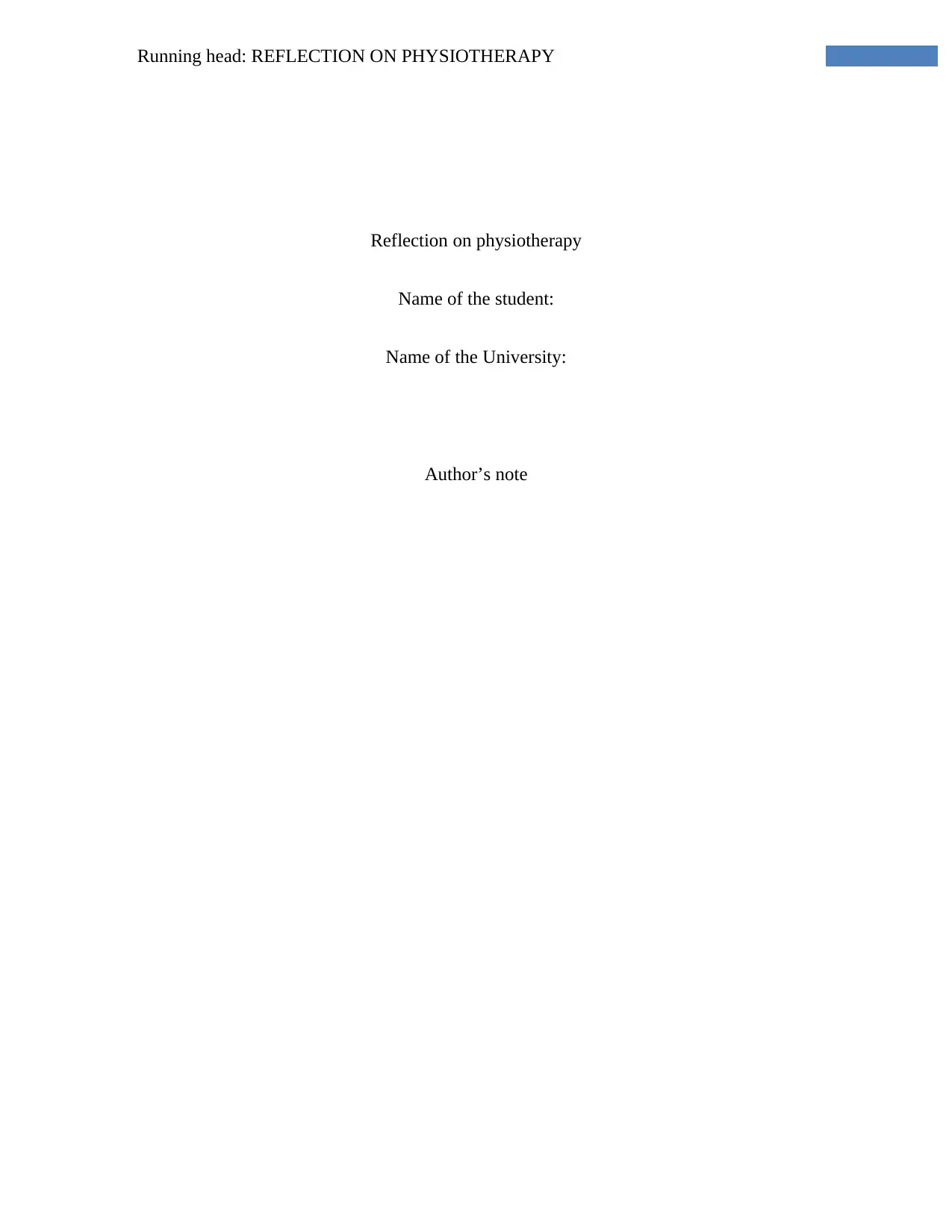
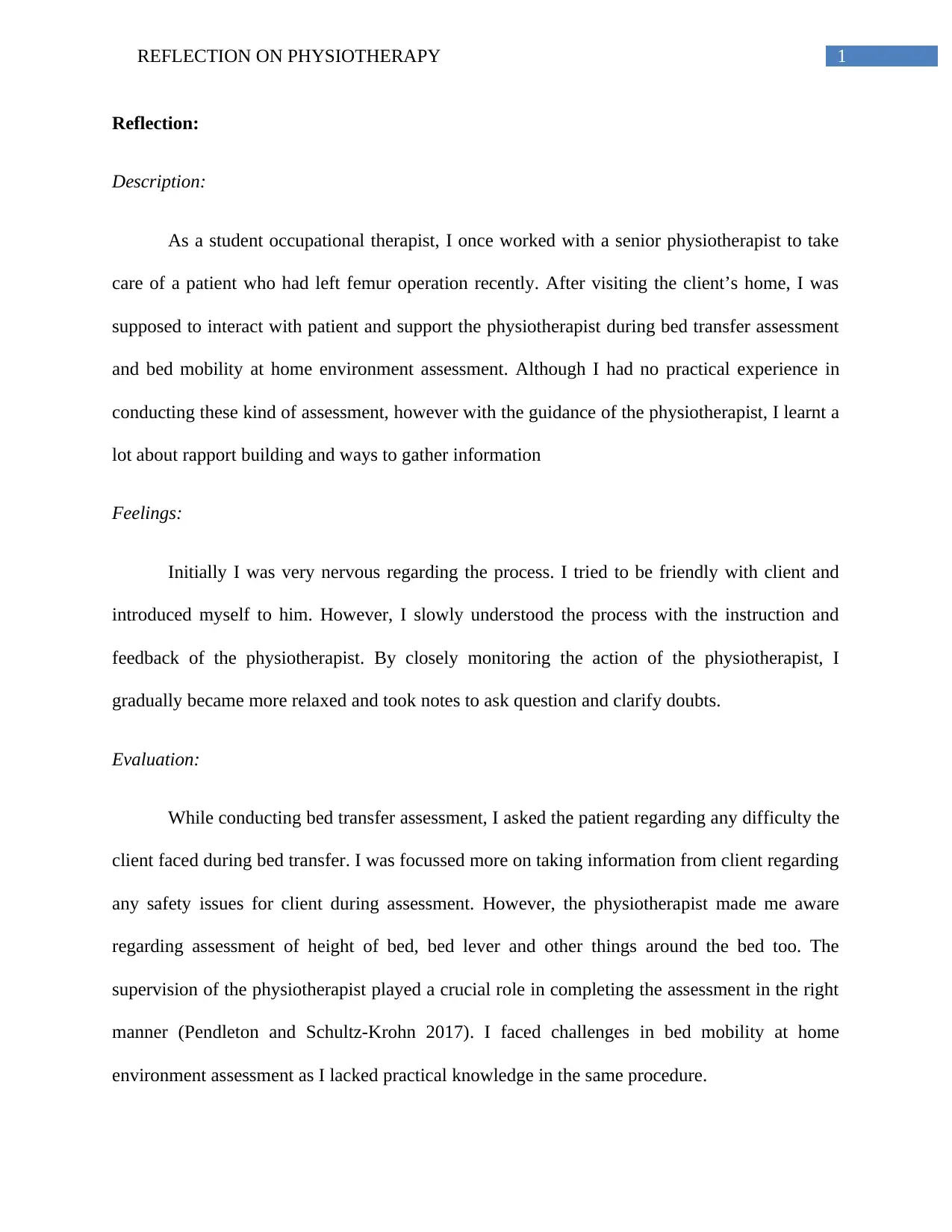
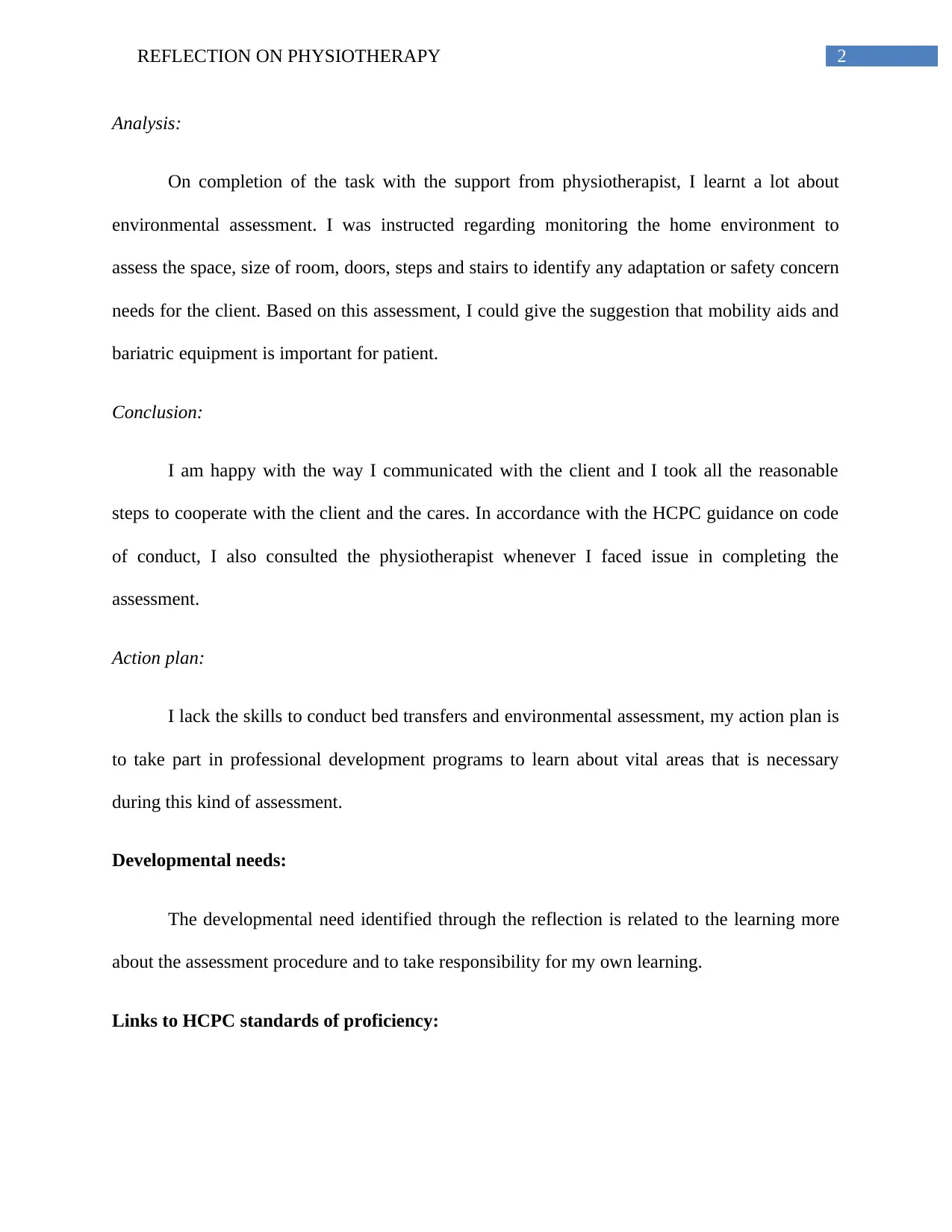

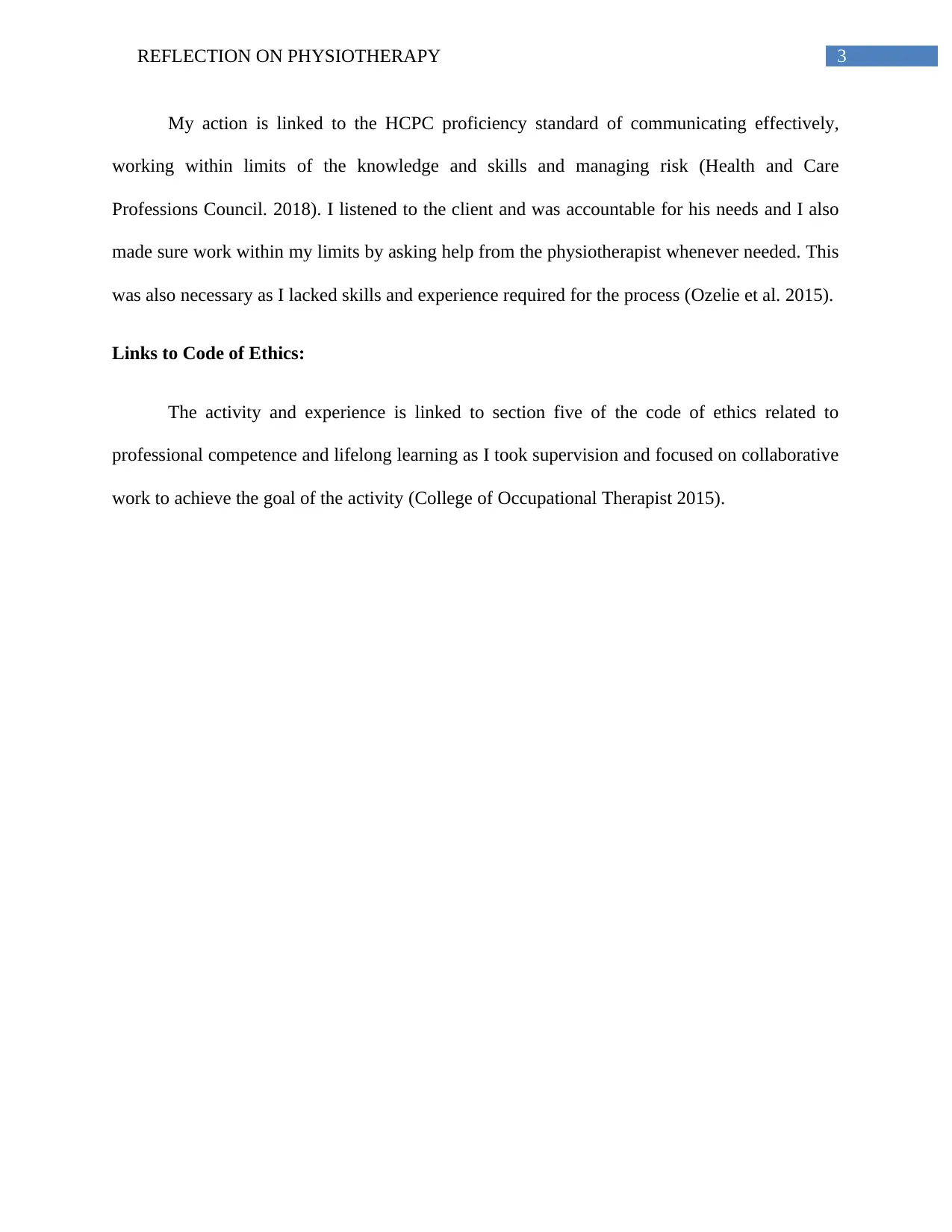
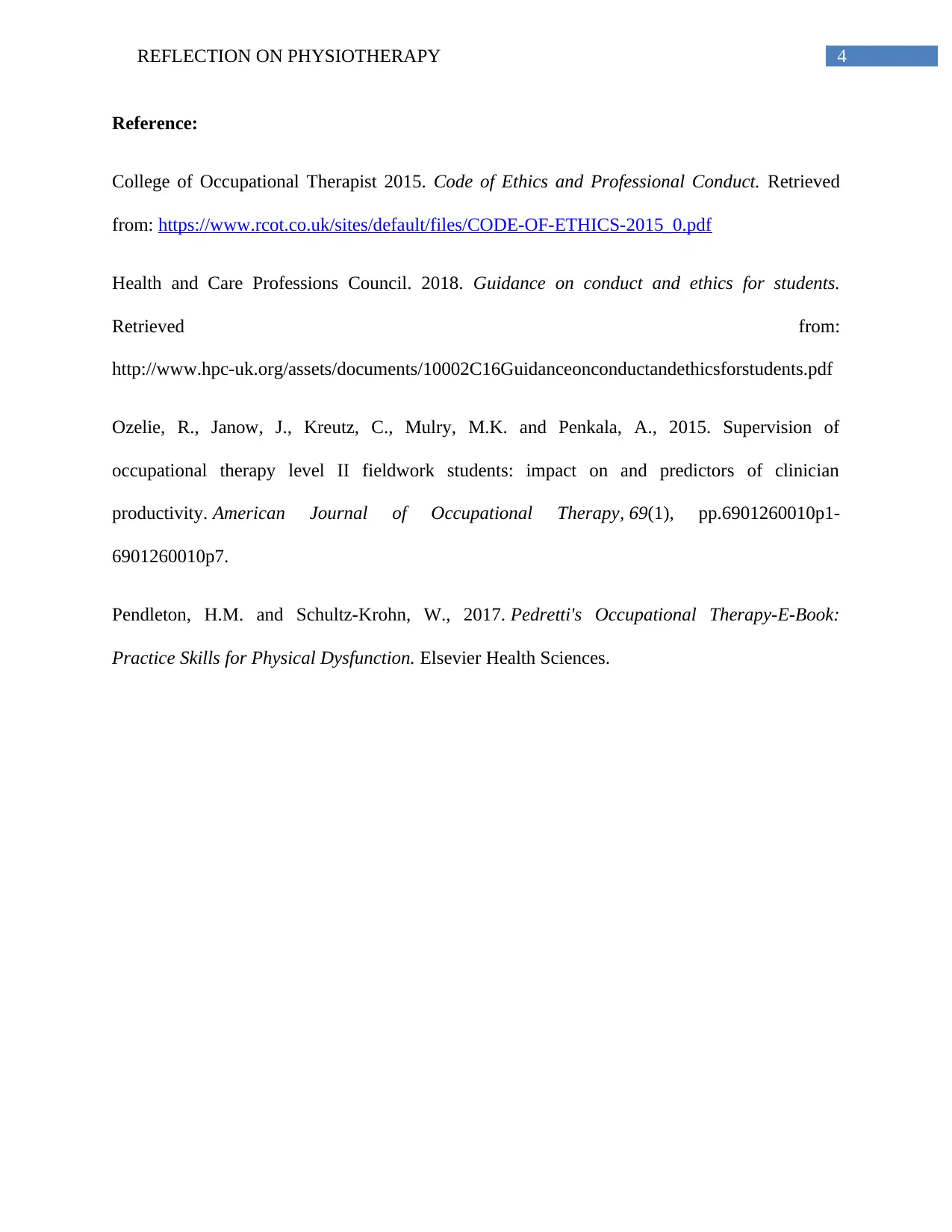




![[object Object]](/_next/static/media/star-bottom.7253800d.svg)